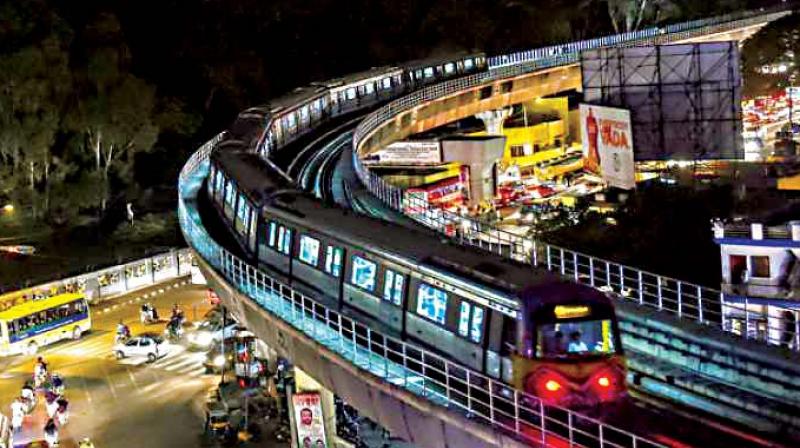Even after 5 years, BMRCL Phase 2 remains on paper
BMRCL officials were not reachable and sources said that a different version by saying that phase II project works started in February 2016.

Bengaluru: Bengaluru Metro Rail Corporation (BMRCL) Phase 2 project got approval as early in 2014, but even after five years the tendering process has still not been completed. The 72-kilometre long project was expected to get over by 2020, but now it has been extended to 2023.
This has outraged many transport activists. Sanjeev Dyamannavar, founding member Praja RAAG, told Deccan Chronicle, "It is very disappointing that BMRCL is not keeping their deadline. It has been five years that project got approved and till today not even one kilometre of stretch has been opened for the public."
The activists also complain that the state government has not reviewed the progress of Phase 2 project till now, but is wasting their time on the elevated corridor.
"There is a lot of issue in BMRCL, as per DPR (detailed project report), with the opening of PH2 extension of 32 km. The total estimated ridership will be more than 11 lakhs commuters per day, which were approved way back 2014, with cost Rs 9,647 crore for extension only. Both State and Central governments should spend more time in completion of extensions instead of elevated corridors. BMRCL promises to commission the metro line to Whitefield in 2021 and to Electronics City in 2022, but they are still acquiring the land. Then in Gottigere to Nagawara, they say that line will be operational in 2023. But still, they have not awarded many tenders. This delay is likely to affect plans to extend metro services from Nagwara to Kempegowda International Airport also," Sanjeev added.
BMRCL officials were not reachable and sources said that a different version by saying that phase II project works started in February 2016. As per the mandate received from the government, a metro project has to be completed in five years once work starts. A majority of reaches will be operational by 2021.

